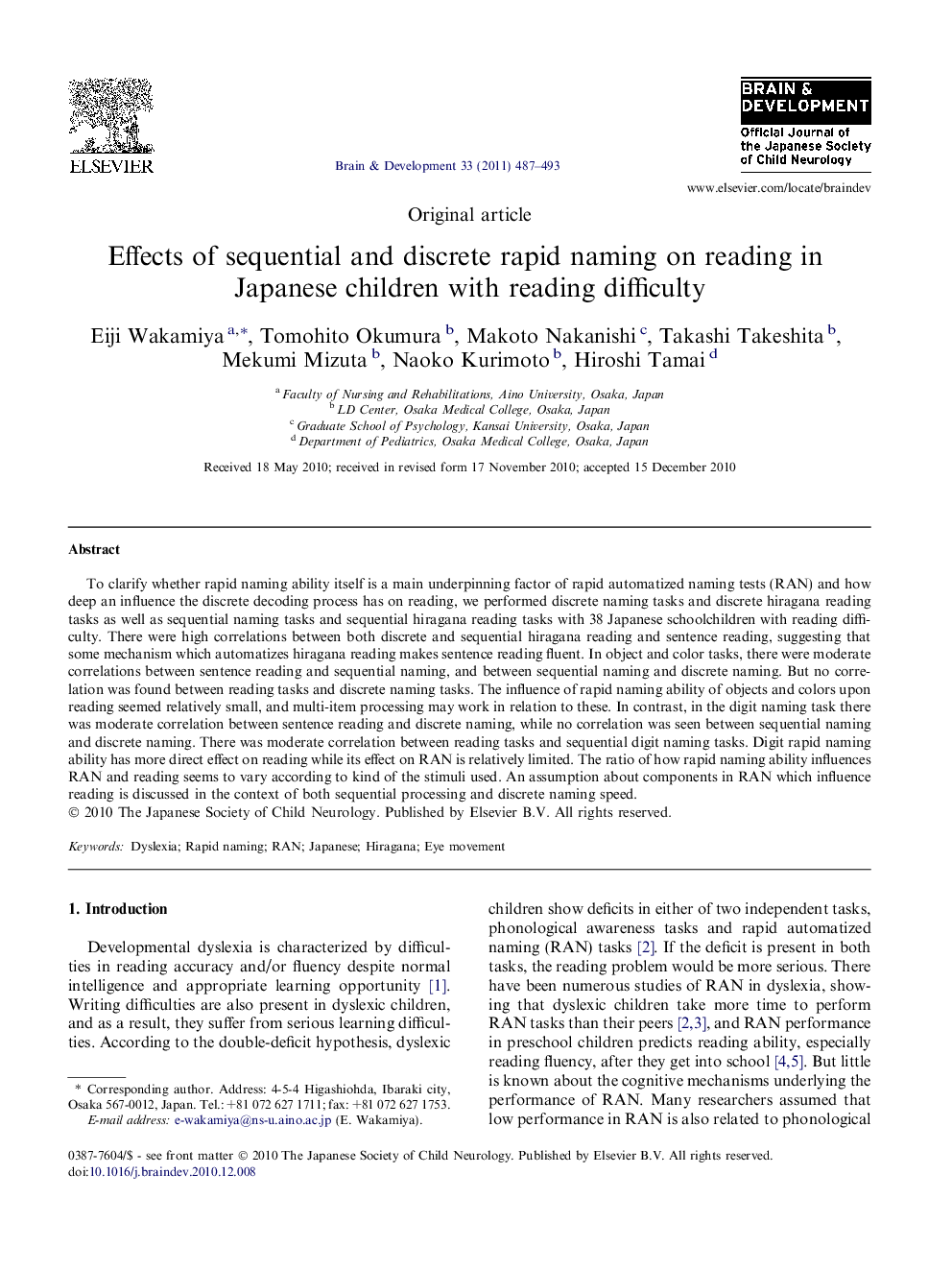| Article ID | Journal | Published Year | Pages | File Type |
|---|---|---|---|---|
| 3037580 | Brain and Development | 2011 | 7 Pages |
Abstract
To clarify whether rapid naming ability itself is a main underpinning factor of rapid automatized naming tests (RAN) and how deep an influence the discrete decoding process has on reading, we performed discrete naming tasks and discrete hiragana reading tasks as well as sequential naming tasks and sequential hiragana reading tasks with 38 Japanese schoolchildren with reading difficulty. There were high correlations between both discrete and sequential hiragana reading and sentence reading, suggesting that some mechanism which automatizes hiragana reading makes sentence reading fluent. In object and color tasks, there were moderate correlations between sentence reading and sequential naming, and between sequential naming and discrete naming. But no correlation was found between reading tasks and discrete naming tasks. The influence of rapid naming ability of objects and colors upon reading seemed relatively small, and multi-item processing may work in relation to these. In contrast, in the digit naming task there was moderate correlation between sentence reading and discrete naming, while no correlation was seen between sequential naming and discrete naming. There was moderate correlation between reading tasks and sequential digit naming tasks. Digit rapid naming ability has more direct effect on reading while its effect on RAN is relatively limited. The ratio of how rapid naming ability influences RAN and reading seems to vary according to kind of the stimuli used. An assumption about components in RAN which influence reading is discussed in the context of both sequential processing and discrete naming speed.
Related Topics
Life Sciences
Neuroscience
Developmental Neuroscience
Authors
Eiji Wakamiya, Tomohito Okumura, Makoto Nakanishi, Takashi Takeshita, Mekumi Mizuta, Naoko Kurimoto, Hiroshi Tamai,
